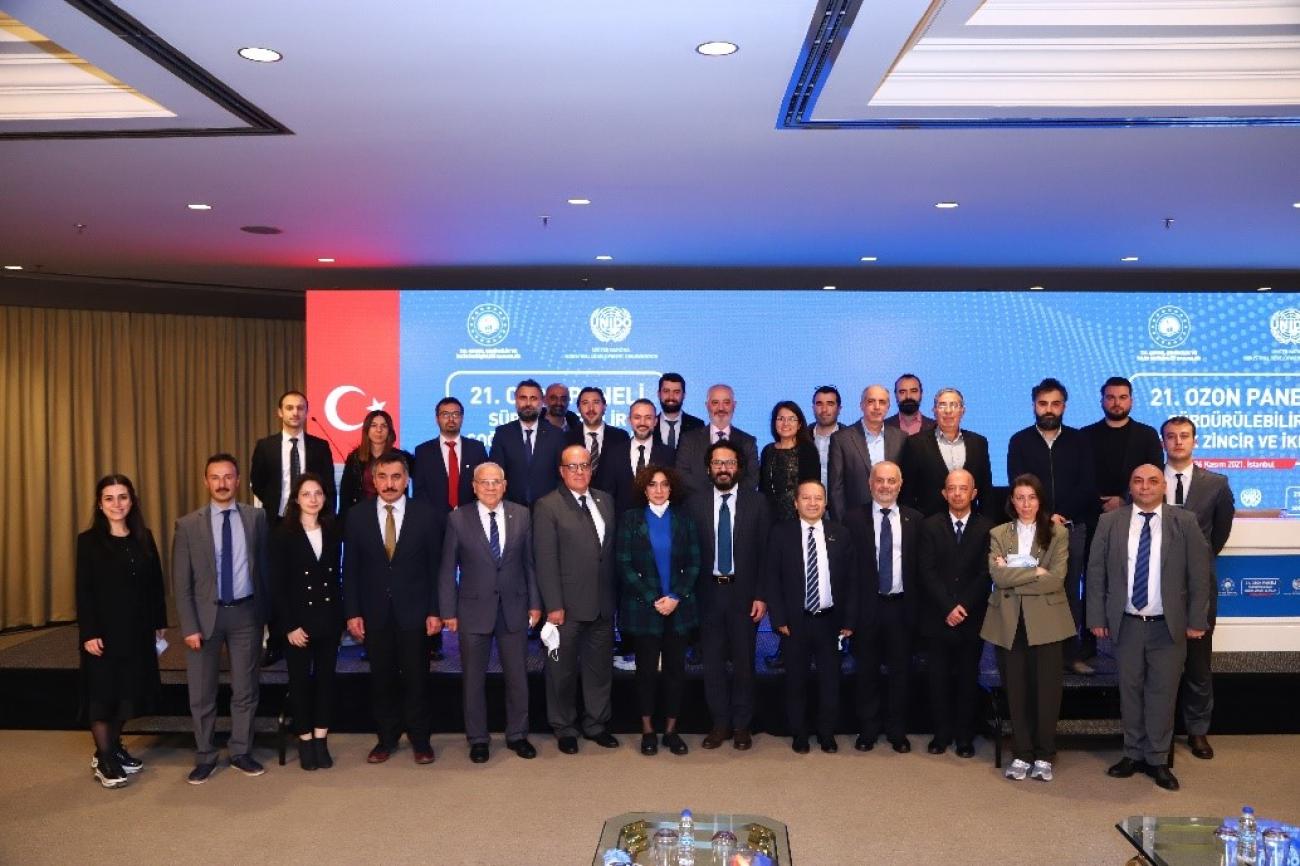21st Ozone Panel organized in Istanbul

The 21st Ozone Panel was organized with the title "Sustainable Cold Chain and Climate" on November 26 in Istanbul.
The Ozone Panel is organized by the Ministry of Environment, Urbanization and Climate Change in cooperation with the United Nations Industrial Development Organization (UNIDO) every year for more than 20 years. This year's panel scoped as "Sustainable Cold Chain and Climate" based on the importance of sustainable cold chain in combating climate change was held in Istanbul on 26 November. In the 21st Ozone Panel, with the contributions of speakers from the Ministry of Environment, Urbanization and Climate Change, Ministry of Agriculture and Forestry, UNIDO, TOBB Turkey Air Conditioning Assembly, ISKID and ESSIAD, and the participation of sector representatives such as the refrigeration sector, associations, retailers, other relevant ministries and UNDP, issues on Sustainable Cold Chain and Climate in Turkey were brought up to the agenda.
The 21st ozone panel started with the opening speeches by Süleyman Yılmaz, UNIDO Country Representative and Director of the UNIDO Centre for Regional Cooperation in Turkey, and Ülkü Füsun Ertürk, Head of the National Ozone Unit of the Ministry of Environment, Urbanization and Climate Change. The panel continued with the presentation on the importance of the cold chain in terms of drug, vaccine and food safety and its environmental effects. In the panel, presentations were also made on Cold Chain Logistics in Turkey and climate-friendly technologies/alternatives in the cold chain, Remote Monitoring and Energy Saving and Demo project outputs, and the latest monitored data after the presentations on the evaluation of the current legislative situation regarding fluorinated greenhouse gases and the outputs of the "Save Food, Protect Your Table" project.
After the presentations, the 21st Ozone Panel "Sustainable Cold Chain and Climate in Our Country", moderated by Prof. Dr. Onur Devres who is the Turkey Representative of European Hygienic Engineering and Agriculture Group was successfully concluded with the comments of the panelists and participants.
The Montreal Protocol began as a global agreement to protect the ozone layer and has become one of the most successful environmental agreements to date. In short, ozone depleting substances, known as ODS, are gradually terminated all over the world, and as a result of global efforts in this regard, the depletion of the ozone layer is improved and human health, economy and ecosystems are protected in return. The Montreal Protocol does much more than mitigating the climate change and helping the improvements in energy efficiency in the refrigeration industry which contributes to food security as well as improvements in air-conditioning and foam sector.
The Kigali Amendment, which is under the Montreal Protocol, contributes to the efforts to combat climate change by targeting the gradual reduction of the production and consumption of Hydrofluorocarbons (HFCs) due to its high greenhouse gas impacts.
The Kigali Amendment will also enable the improvement of energy efficiency in the refrigeration sector, providing the opportunity to redesign the air conditioning and cooling systems to consume less power with alternative technologies to be used instead of Hydrofluorocarbons, and will allow to increase comfort cooling and cold chain efficiency without increasing the negative impacts on climate change. Reducing the consumption of these gases and increasing the efficiency of the cold chain are also struggling with food loss, especially in developing economies.
While Turkey continues to protect the ozone layer by committing to the gradual reduction of the production and consumption of fluorinated greenhouse gases, like the all parties to the Montreal Protocol Kigali Amendment, it continues to increase its contribution to the fight against climate change in line with the Montreal Protocol and the Paris Agreement.
The problems that have arisen with the COVID-19 pandemic, which has become a global crisis in the last two years, have revealed the necessity of ensuring the sustainability of an efficient and unbreakable cold chain in terms of both food and vaccine supply and safety. The cold chain ensures that food, medicine, vaccines and other products are safely and temperature-controlled from the producer to the consumer. It will contribute greatly to the fight against climate change by improving the energy efficiency of cooling systems and transitioning to zero or low climate impact or natural refrigerants.



